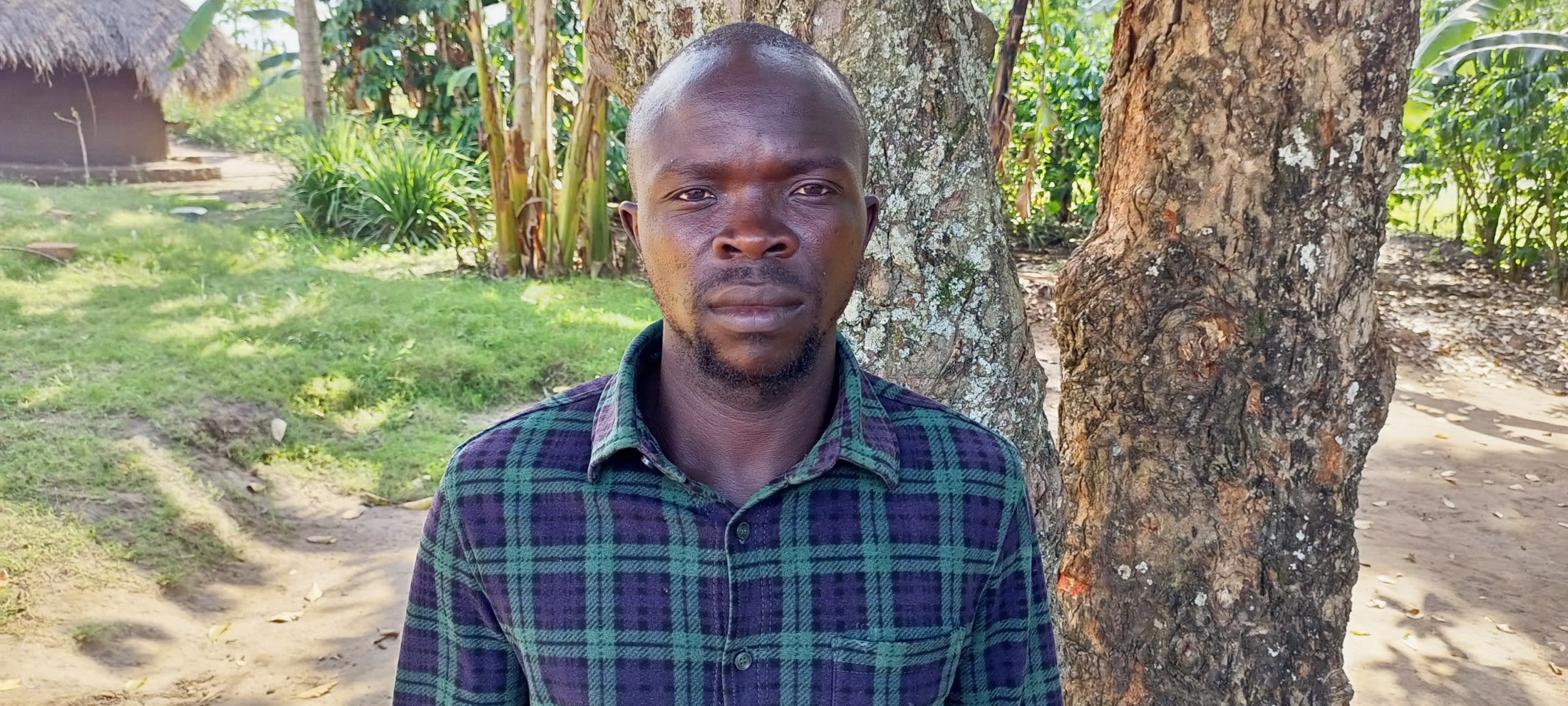For the 350 people who live in Kyakaki, finding sufficient water each day is a laborious, exhausting task, no matter where they must collect water from.
There is a borehole in a neighboring community, but it's very far away and always overcrowded because it is also used by people from the village of Kyabikuule. Thirty-year-old farmer Amos Abiriga attempts to collect drinking water from there three times a week. However, when he finds a long queue, he often comes back with empty jerrycans and must rely on the only other option, the local swamp.

It is obvious by looking at the swamp that it is an unsafe source for those in the community to rely on, but they have no other choice, so are forced to drink and use its water regardless of the high cost to their health and other resources.
"I consider the swamp as our primary [water] source. However, the water is very dirty, making it hard to be used for washing white clothes because it stains them," said Amos. The water must be boiled to prevent staining requiring that people also collect firewood, adding even more time to this already time-consuming task.
"I am the one who collects water for the home, especially when my parents are in the garden, preparing food or cleaning," said 11-year-old Flavia D.

Each day, after Flavia returns from attending classes at Ntooma Primary School, she must head to the swamp to collect water. Once she has finished collecting water, it is nearing the end of the day, so she has run out of time to play with her friends, and she is exhausted. It is worth noting that many families only send the adults to collect water in the swamp because of dangerous snakes in the area, but Flavia must take the risk since it is her responsibility.
Community members like Amos and Flavia are in desperate need of a closer water source that will allow them and other people in this area of Kyakaki quicker access to safe water so they can regain some time and their health.
Note: Our proposed water point can only serve 300 people per day. We are working with the community to identify other water solutions that will ensure all 350 people in the Kyakaki community have access to safe and reliable drinking water.
Here’s what we’re going to do about it:
New Borehole
This new borehole is an exciting opportunity for this community! We work with the community to determine the best possible sites for this well.
We conducted a hydrogeological survey and the results indicated the water table is an ideal candidate for a borehole well. Due to a borehole well's unique ability to tap into a safe, year-round water column, it will be poised to serve all of the water needs for this community, even through the dry months.
Community members will help collect the needed construction materials such as sand, rocks, and water for mixing cement. They will also provide housing and meals for the work team, in addition to providing local laborers. We will complement their materials by providing an expert team of artisans and drilling professionals, tools, hardware, and the hand-pump. Once finished, water from the well will then be used by community members for drinking, handwashing, cooking, cleaning, and much more.
Training
Training’s main objectives are the use of latrines and observing proper hygiene practices since these goals are inherently connected to the provision of clean water. Open defecation, water storage in unclean containers and the absence of hand-washing are all possible contaminants of a household water supply. Each participating village must achieve Open Defecation Free status (defined by one latrine per household) prior to the pump installation for this borehole well.
This social program includes the assignment of one Community Development Officer (CDO) to each village. The CDO encourages each household to build an ideal homestead that includes: a latrine, a handwashing facility, a separate structure for animals, a rubbish pit and a drying rack for dishes.
We also implement the Community-Led Total Sanitation (CLTS) approach with each of our village partners. This aims to improve the sanitation and hygiene practices and behaviors of a village. During these sessions, village leaders naturally emerge and push the community to realize that the current practices of individual households – particularly the practice of open defecation – are not only unhealthy, but affect the entire village. CLTS facilitates a process in which community members realize the negative consequences of their current water, sanitation and hygiene behaviors and are inspired to take action. Group interactions are frequent motivators for individual households to build latrines, use them, and demand that other households do the same.
Improved Sanitation
The aim is that all households own an improved latrine. Many households do not use a latrine but use the bush. Due to open defecation, feces are spread all over the village. This leads to waterborne diseases and contamination of groundwater and surface water. Our aim is that the community is able to live a healthy life free of preventable diseases. We endeavor that at the end of our presence in the community, people will have both access to sustainable, clean water and access to sanitation. We have now organized families to form digging groups for latrine construction, and empowered them with tools to use.





 Borehole Well and Hand Pump
Borehole Well and Hand Pump
 Rehabilitation Project
Rehabilitation Project











 When it came time to build the cement well pad, community members found fine sand and water to mix the cement. After the cement platform dried, we installed a stainless steel Consallen pump, which is now flowing with clean, safe water!
When it came time to build the cement well pad, community members found fine sand and water to mix the cement. After the cement platform dried, we installed a stainless steel Consallen pump, which is now flowing with clean, safe water!










